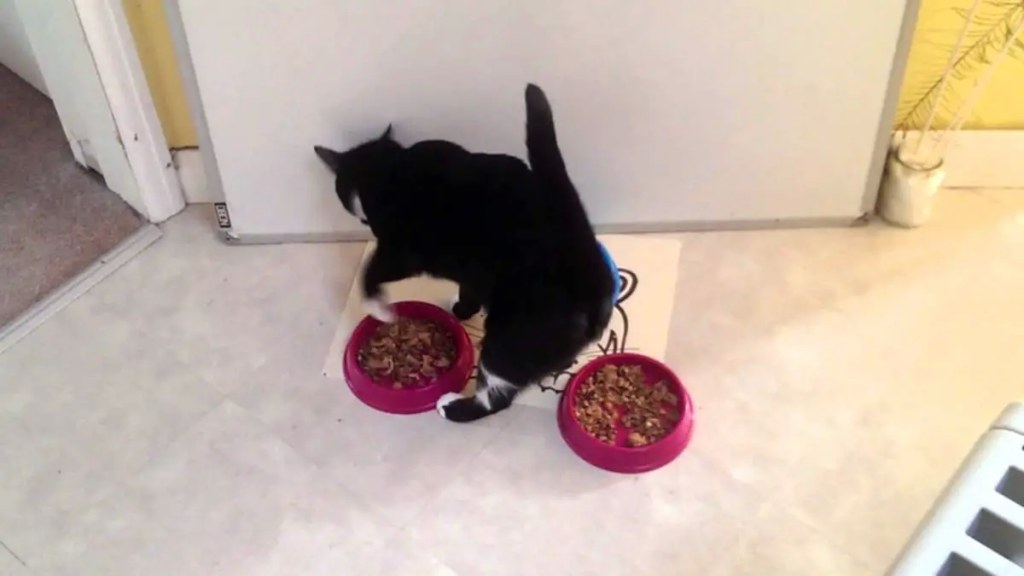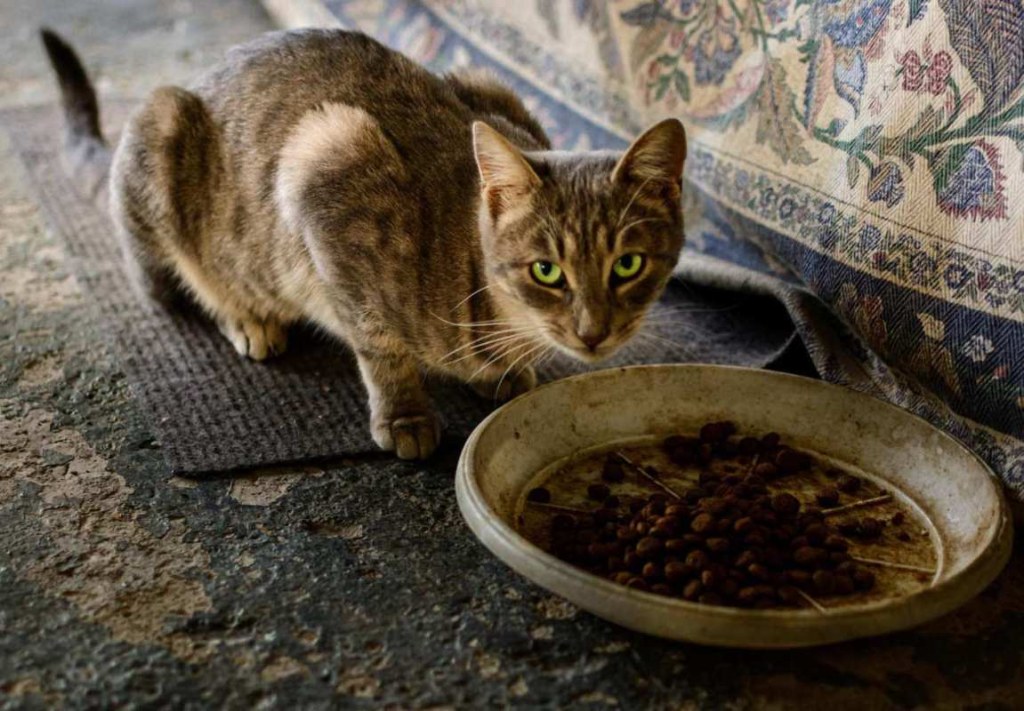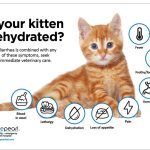Unusual Behavior Alert: Cat Not Eating, Attempting To Bury Food! Take Action Now To Help Your Feline Friend
Cat Not Eating Trying to Bury Food: A Mysterious Behavior
Introduction
Dear Cat Enthusiast,
2 Picture Gallery: Unusual Behavior Alert: Cat Not Eating, Attempting To Bury Food! Take Action Now To Help Your Feline Friend


Have you ever noticed your beloved feline friend refusing to eat their food and instead attempting to bury it? This peculiar behavior can leave cat owners puzzled and concerned. In this article, we will delve into the reasons behind this unusual habit and shed light on the possible explanations. Understanding why cats exhibit this behavior can help us better cater to their needs and ensure their well-being.
Let us now explore the intriguing world of cats and their unique behaviors.
What Causes a Cat to Not Eat and Try to Bury Their Food?

Image Source: lottothecat.com
🔍 To comprehend why cats behave in such a manner, it is essential to delve into their evolutionary history. Cats, as natural predators, have retained powerful instincts from their wild ancestors. In the wild, a cat’s instinct is to hide leftover food to avoid attracting potential predators and to mark their territory. This behavior can still manifest in domesticated cats, leading them to bury their food.
🔍 Deeper psychological reasons may also contribute to this behavior. Stress and anxiety can cause a cat to lose its appetite and exhibit unusual behaviors such as trying to bury their food. Environmental changes, the introduction of a new pet, or even the absence of their human companion can all trigger stress in cats.
🔍 Additionally, medical issues should not be overlooked when a cat refuses to eat and buries their food. Dental problems, gastrointestinal discomfort, or underlying illnesses can make eating painful or uncomfortable for a cat, prompting them to reject their food and exhibit this behavior.
🔍 Another factor to consider is the cat’s feeding routine. Cats are creatures of habit and may develop preferences for certain types of food or feeding environments. If their food doesn’t meet their expectations, they may attempt to bury it in search of a more satisfactory meal.

Image Source: i0.wp.com
🔍 It is also worth noting that this behavior can vary between individual cats. Some cats may rarely exhibit this behavior, while others may do it consistently.
Who Exhibits this Behavior?
🔍 Many cats can display this behavior, regardless of their age, breed, or gender. It is important to remember that every cat is unique, and while some may bury their food frequently, others may never exhibit this behavior.
When Does a Cat Not Eat and Try to Bury Their Food?
🔍 There can be several instances when a cat may refuse to eat and try to bury their food. Stressful situations, changes in their environment, or medical issues can trigger this behavior. Additionally, cats may exhibit this behavior if they are dissatisfied with their current feeding routine or if they are presented with food that is not to their liking.
Where Does the Behavior Occur?
🔍 This behavior can occur anywhere a cat is fed. Whether it’s their regular feeding area, a different location, or even if they are fed outside, cats may still exhibit this behavior if they are not satisfied with their food.
Why Do Cats Exhibit this Behavior?
🔍 As mentioned earlier, cats have retained strong instincts from their wild ancestors. Burying their food can serve as a survival tactic, allowing them to protect their food from potential predators and marking their territory. Psychological factors such as stress and anxiety can also contribute to this behavior. Additionally, health issues can cause discomfort while eating, leading the cat to reject their food and try to bury it.
How Can You Address this Behavior?
🔍 To address this behavior, it is crucial to first rule out any underlying medical issues. If your cat consistently refuses to eat and attempts to bury their food, a visit to the veterinarian is recommended. Dental problems, gastrointestinal issues, or other health concerns can be addressed, allowing your cat to eat comfortably.
🔍 If stress or anxiety is the cause, creating a calm and secure environment for your cat is essential. Providing a quiet and secluded space where they can eat without disturbances can help alleviate their concerns. If changes in their environment trigger this behavior, gradually introducing them to the new elements can help reduce their stress levels.
🔍 Ensuring a consistent and appealing feeding routine can also prevent this behavior. Experimenting with different types of food or feeding methods can help determine your cat’s preferences and cater to their needs accordingly.
Advantages and Disadvantages of Cat Not Eating and Trying to Bury Food
Advantages:
1. Food Preservation: Burying food helps protect it from potential predators, ensuring a future meal for the cat.
2. Territory Marking: This behavior allows cats to mark their territory, establishing a sense of ownership over their surroundings.
Disadvantages:
1. Nutritional Concerns: If a cat consistently buries their food and refuses to eat, it can lead to nutritional deficiencies and weight loss.
2. Health Issues: Underlying health problems may go unnoticed if the cat’s behavior is attributed solely to burying food.
Frequently Asked Questions (FAQs)
1. Q: Is it normal for a cat to bury their food?
A: Yes, burying food is a natural behavior for cats, rooted in their evolutionary instincts.
2. Q: How can I stop my cat from burying their food?
A: Understanding the underlying cause is crucial. Address any potential medical issues, reduce stress factors, and create a feeding routine that suits your cat’s preferences.
3. Q: Should I be concerned if my cat consistently buries their food and doesn’t eat?
A: Yes, if your cat consistently exhibits this behavior, it is advisable to consult a veterinarian to rule out any underlying health issues.
4. Q: Can I train my cat to stop burying their food?
A: While it may be challenging to completely eliminate this behavior, providing a suitable feeding environment and addressing any underlying issues can help minimize it.
5. Q: What other unusual behaviors should I be aware of in my cat?
A: Cats exhibit various unique behaviors. Pay attention to changes in eating habits, litter box usage, grooming patterns, and social interactions, as they can indicate potential health or behavioral issues.
Conclusion
🔍 In conclusion, the behavior of cats not eating and trying to bury their food can be attributed to their innate instincts, stress, or underlying medical issues. By understanding the reasons behind this behavior, we can take appropriate measures to ensure our feline companions’ well-being.
🔍 If your cat consistently refuses to eat and attempts to bury their food, it is crucial to consult with a veterinarian to rule out any health concerns. Creating a calm environment, offering appealing food options, and considering your cat’s preferences can help address this behavior effectively.
Remember, every cat is unique, and it is our responsibility as pet owners to cater to their individual needs and provide a safe and nurturing environment.
Final Remarks
Dear Cats Lover,
Understanding the behavior of cats not eating and trying to bury their food can be challenging, but by delving into their instincts and addressing any underlying issues, we can ensure their well-being. It is important to be observant and responsive to our feline friends’ needs, providing them with the care and attention they deserve.
Disclaimer: This article is for informational purposes only and should not replace professional veterinary advice. If you have concerns about your cat’s health or behavior, please consult a qualified veterinarian.
This post topic: Cats



